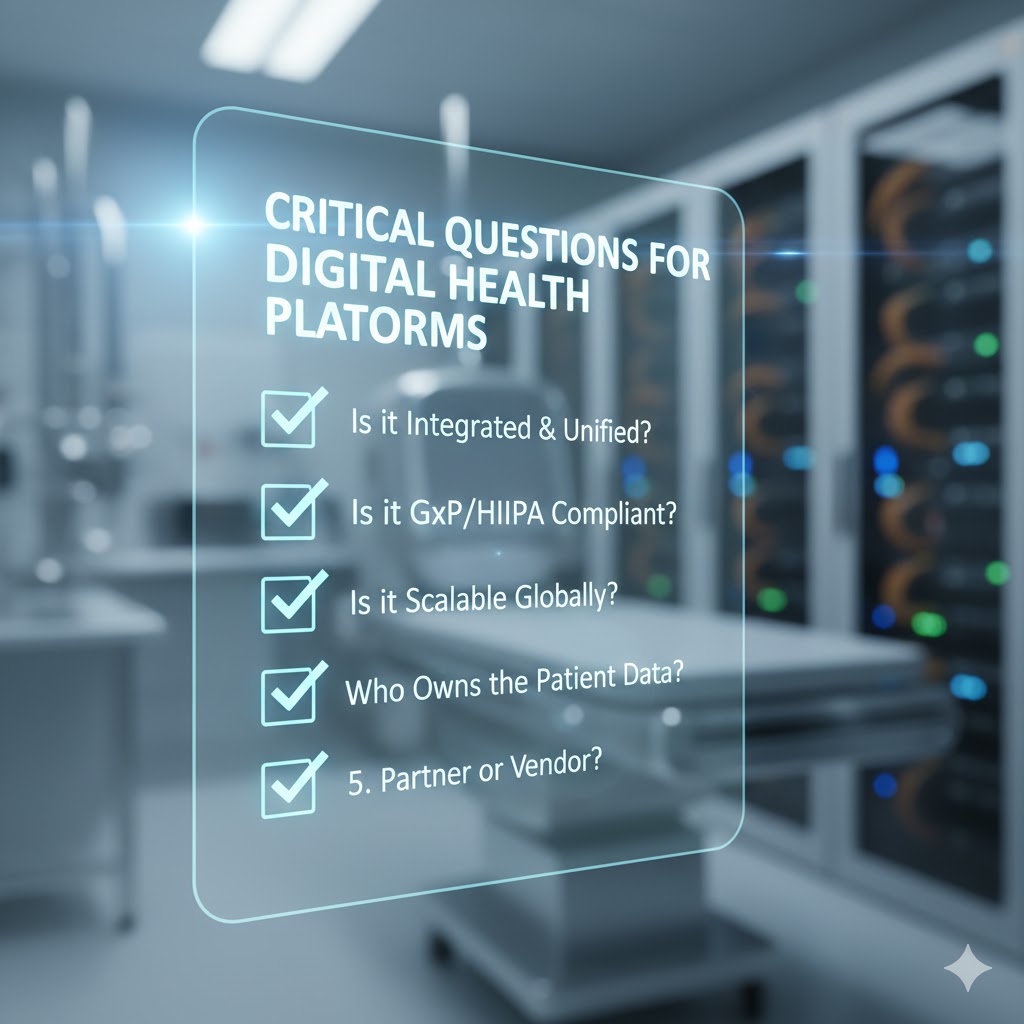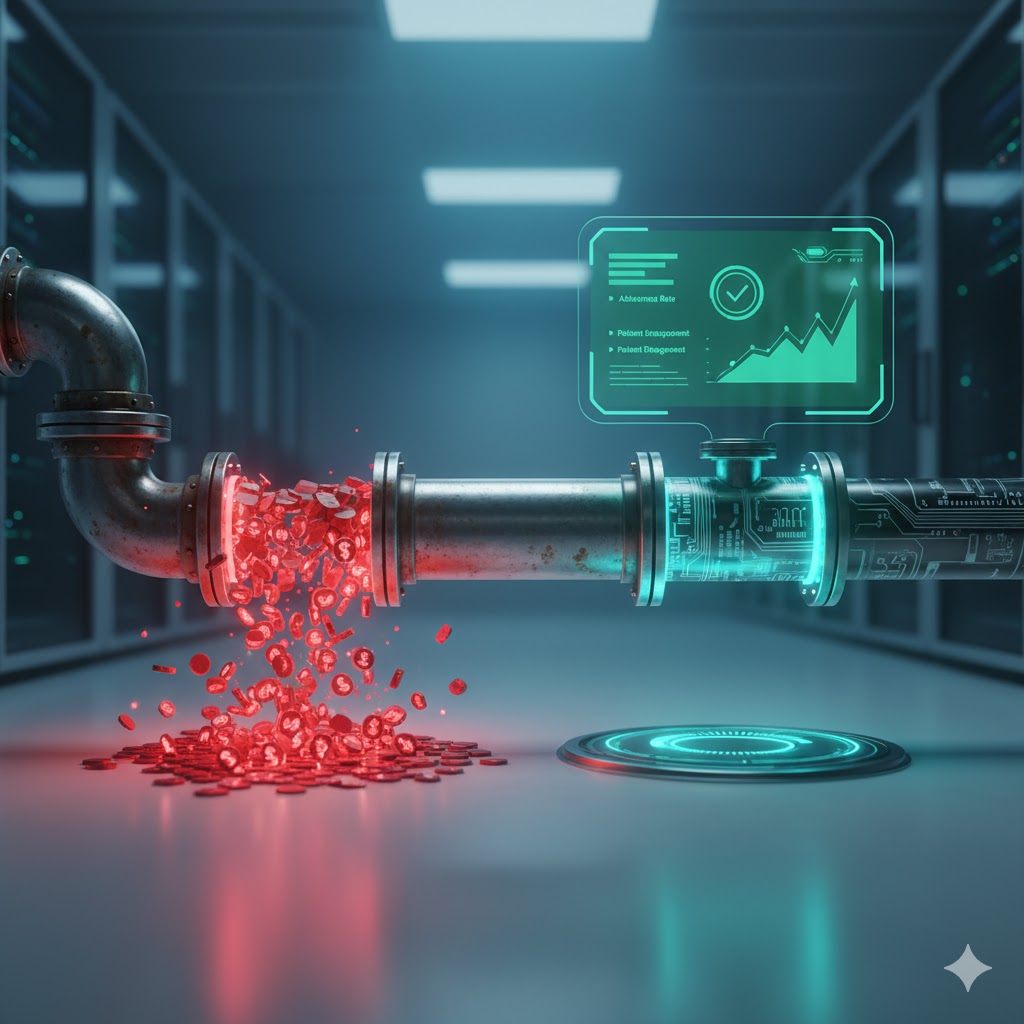Benefits of Enhancing Digital Health with Chatbot Technology
The journey of chatbots from simple text-based interfaces to sophisticated AI tools capable of medical consultations encapsulates decades of technological evolution. Originating in the 1960s with Eliza, a rudimentary program simulating a psychotherapist, chatbots have come a long way. While Eliza could create the illusion of a therapeutic conversation, it wasn't convincing enough to pass the Turing Test—a measure to see if a machine can mimic human behavior indistinguishably. The 1972 bot Parry took it further by passing this test, simulating a paranoid individual so convincingly that human interrogators couldn't differentiate it from a real person.
With the advent of the internet and the proliferation of smartphones, chatbots have gone mainstream, gaining notable attention with the introduction of Siri in 2011. Now, chatbots are increasingly infiltrating the healthcare sector. Companies like HealthTap offer bots on platforms like Facebook Messenger, where users can seek medical advice directly from doctors. While fitness bots are currently leading the pack, medical bots are gaining traction, marking an important step in AI's role in healthcare. Though not yet widespread, their growing presence suggests a promising future for more accessible and immediate healthcare assistance.
The World Economic Forum highlights that chatbots, powered by Natural Language Processing (NLP), are increasingly pivotal in various sectors, including healthcare. While developing the chatbot is straightforward, the challenge lies in the conversational aspect, particularly in sensitive areas like healthcare, where user comfort is crucial. Healthbots are already alleviating pressures on local healthcare systems globally, not just in developed countries. For instance, in Rwanda, where there's roughly one doctor for every 10,000 people, these digital tools facilitate access to medical professionals and information. According to Salesforce, 86% of customers prefer chatbot interactions to filling out web forms, and this preference extends to healthcare. Chatbots offer a more personal and convenient self-service tool, making them the next frontier in healthcare customer service, planning, and management.
Benefits of Chatbots in Healthcare
In a world that the pandemic has dramatically reshaped, efficiency and responsiveness in healthcare have become more critical than ever. Patients no longer have the patience to stand in long queues or wait endlessly on the phone for medical guidance. The lingering sense of vulnerability and caution due to the virus has placed an added emphasis on the healthcare sector to be proactive in their customer service strategies. This industry is rising to the occasion by adopting healthcare chatbots.
In terms of financials, the global chatbot market was worth around $526 million in 2021, projected to skyrocket to an estimated $3.619 billion by 2030. The survey indicates a compound annual growth rate (CAGR) of 23.9% during the period in question. Therefore, the benefits of this technology for patients and healthcare providers are beyond question.
1. Enables Prompt Response for Time-Sensitive Medical Queries
In healthcare, every second counts. Chatbots are designed to provide immediate answers to patient queries, operating around the clock. By doing so, they foster trust and potentially alleviate anxiety during medical emergencies. This rapid response system bypasses the need for time-consuming traditional channels like emails, offering a quicker and more efficient solution.
2. Elevates Customer Service by Managing Multiple Interactions
Traditional customer service agents can manage only a limited number of interactions simultaneously. Chatbots break this limitation by handling an unlimited number of queries simultaneously. This hyper-efficiency ensures that customer service is consistent, personalized, and available when patients need it the most, without compromising quality.
3. Ensures Timely Medical Assistance During Emergencies
In life-threatening or anxiety-inducing situations, immediate medical advice is crucial. Chatbots provide instant assistance, directing patients to relevant solutions or medical practices. This 24/7 service ensures medical advice is always a click away, making healthcare more accessible and reliable.
4. Bridging the Gap in Medication Compliance with Reminders
Non-compliance with medication schedules is a significant issue in healthcare. Chatbots help by sending out daily reminders and offering advice on how to take medications. Working as personal health trackers, these chatbots remind patients of the importance of adhering to their treatment plans.
5. Streamlining Appointment Scheduling and Reminders
The conventional appointment-booking system involving phone calls is time-consuming and often inefficient. Chatbots revolutionize this by allowing patients to check availability and book appointments easily. Furthermore, they send reminders for upcoming appointments, improving attendance rates and overall healthcare experience.
6. Cost Reduction Through Automated Services
Deploying chatbots in healthcare can significantly cut costs by automating tasks traditionally performed by humans. This automation includes customer service, appointment scheduling, and even medical consultation. By reducing manual effort, healthcare providers can reallocate resources to more critical aspects of healthcare.
7. Facilitating Easier Collection of Feedback for Continuous Improvement
Collecting feedback is crucial for any service-oriented industry, and healthcare is no exception. Chatbots make this process easier by interacting with patients post-consultation. Their conversational interface encourages more patients to share feedback, providing valuable data that can be used to improve services and patient experiences.
8. Simplifying the Invoicing and Payment Process
Administrative tasks like invoicing and payment tracking are time-consuming and prone to errors. Chatbots can automate these processes, ensuring accuracy and saving time for healthcare providers. This efficient invoicing system makes for a smoother, faster payment process for providers and patients.
9. Boosting Employee Productivity Through Internal Support
Chatbots are not just for the patients; they can also be valuable tools for healthcare providers. Employees can turn to the chatbot for instant assistance for internal queries or quick access to resources. This automated assistance frees up time for medical staff to focus on patient care, increasing overall productivity.
10. Adding Value to Business Growth Through Enhanced Engagement
In the digital age, user engagement is critical to business growth. Chatbots keep users engaged on healthcare websites for longer periods, improving the site’s search engine rankings and visibility. This elevated user engagement translates to better brand recognition and potentially higher revenue streams for healthcare providers.
Use Cases For Chatbots in Healthcare
Chatbots are becoming an integral part of modern healthcare, offering innovative ways to improve patient care, streamline administrative processes, and enhance the overall healthcare experience. By leveraging artificial intelligence, chatbots can assist in everything from answering patient inquiries and scheduling appointments to providing medical information and mental health support. Their ability to offer 24/7 availability and real-time responses makes them a valuable tool for both healthcare providers and patients, helping to reduce costs, save time, and increase access to care. In this article, we explore the diverse use cases of chatbots in healthcare, showcasing their transformative potential.
1. Appointment Booking
Chatbots in healthcare serve a pivotal role in scheduling appointments. By having real-time access to doctors' availability and insights into patients' symptoms, these chatbots can perform multiple functions:
-Secure an appointment slot matching the doctor's free time.
- Pre-arrange appointments to ensure uninterrupted treatment plans.
- Assist in booking specialized tests at healthcare facilities.
- Integrate with users' calendars to send timely appointment reminders.
2. Handling Prescription Refills
Prescription management can be streamlined using chatbots. These automated tools can:
- Retrieve patient records and verify them against the healthcare facility's database.
- Facilitate prescription refills without needing human intervention.
- Notify patients about overdue prescriptions, enabling timely refills and allowing the healthcare providers to resolve any issues promptly.
3. Disseminating Information on Public Health Crises
Chatbots can act as vital information hubs during public health emergencies. For example, during the COVID-19 pandemic, they were utilized for:
- Disseminating accurate and timely information to the public.
- Redirecting patients to healthcare facilities with available beds.
- Offering stress-relief solutions during high-stress times.
- Providing updates about vaccine centers and scheduling reminders for subsequent doses.
4. Symptom Assessment
Symptom assessment chatbots, such as Healthily, have become a reality. These tools:
- Collect symptom-related data from the user.
- Generate a report outlining potential causes and recommended next steps in the treatment plan. Symptom assessment chatbots are virtual assistants with AI powering them. They help individuals identify symptoms by answering questions, providing recommendations, and, if the need arises, connecting them to a healthcare professional.
5. Managing Insurance Claims and Coverage
The process of insurance claims and coverage queries can be significantly simplified through chatbots. These bots can:
- Answer commonly asked questions about insurance policies.
- Clarify which medical conditions are covered and which are not.
- Assist in filing insurance claims for reimbursements.
Chatbots have shown they can revolutionize how healthcare insurance information is shared, making the future look incredibly promising.
The Future of Chatbots In the Healthcare Industry
In a not-so-distant future, imagine walking into a digitally transformed health sanctuary, where AI chatbots serve as your health guardians—always vigilant, ever insightful. Picture these virtual sages seamlessly interpreting your health concerns, eliminating the hurdles of wait times, reception desks, and labyrinthine call center mazes.
A Symphony of Healthcare Efficiency
Instead of "on-hold" music serenading you for an indefinite period, a friendly AI chatbot materializes on your smartphone or smart display, ready to assist. "Hello, how may I assist with your wellness journey today?" it inquires. In moments, it processes your request for a prescription refill or schedules your next check-up, all while parsing through complex medical databases to align its recommendations with your unique health profile.
Your Digital Doctor's Companion
This chatbot isn’t just a combination of various computer programs; it's your healthcare concierge, attuned to your medical history and specific needs. If you describe a worrisome symptom, it cross-references a medical encyclopedia in nanoseconds, considering the nuances of your situation. You may be in a rural area, far from medical facilities, or speak a language that most healthcare providers do not. This intelligent assistant bridges those gaps seamlessly, uniting disparate elements into a harmonious healthcare experience.
More Than Just a Tool
You begin to realize this is not merely a utility; it’s an empowerment engine that encourages you to seize the reins of your health. And while you're actively participating in your wellness, the professionals are liberated from the minutiae that often eclipses meaningful patient interaction. Doctors and nurses can now give their undivided attention to clinical decisions and human care, elevating the art of medicine to new heights.
The Armor of Privacy
Lest you worry about your sensitive data, this AI multitasking manager is more like a health vault, fortified with state-of-the-art encryption, ensuring your personal information stays personal.
This vision isn't just a far-off dream; it's an imminent revolution that promises to democratize healthcare, transforming it from a monolith of inefficiency into a bastion of personalized care. And as this technology evolves, its potential to combat health disparities on a global scale becomes increasingly evident.
The picture above appears to be the future of healthcare—a symphony orchestrated by artificial intelligence, where every note resonates with empathy, efficiency, and empowerment.
Conclusion
The evolution of healthcare chatbots from their rudimentary beginnings with Eliza to today's sophisticated, AI-driven conversational agents is nothing short of transformative. These modern chatbots can perform complex tasks from symptom diagnosis to offering real-time, personalized medical advice. Their role is pivotal in democratizing healthcare access and breaking geographical, linguistic, and financial barriers. They facilitate early intervention by identifying red flags and serve as an empowerment tool for individuals to take control of their health. As we continue integrating these AI-driven platforms into healthcare systems, the potential for increased patient engagement and more efficient use of medical resources is immense. In an era where technology often dictates the pace of progress, healthcare chatbots stand as a testament to how AI can be worked for the larger good of larger people, bringing us closer to a world where quality healthcare is not a privilege but a right accessible to all.
Mahalo Health is a leading SaaS company that accelerates digital healthcare innovation. Specializing in rapid deployment, their platform enables biopharma and medtech firms to launch patient-centric apps and clinical trials in weeks. Mahalo simplifies the complexities of building and maintaining regulated digital health products by offering scalable, medical-grade solutions. We're a go-to partner for fast, compliant digital healthcare transformation. Contact us for a demo today!





